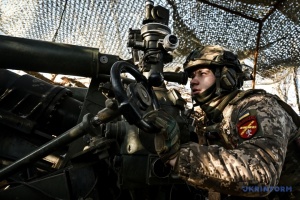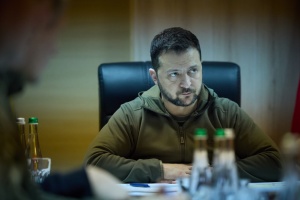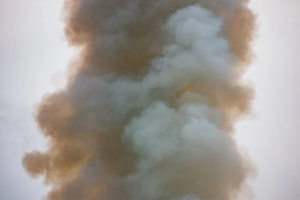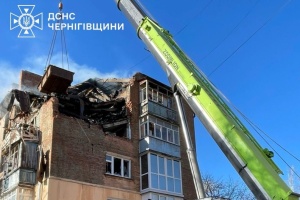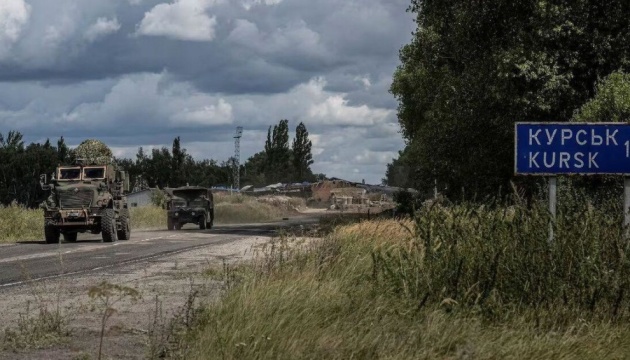
Kursk incursion has forced Moscow to change its SVO objectives
Intermediate outcomes: throughout this month, Ukrainian Armed Forces advanced 35 km deep into the territory of the Russian Federation, took control of 1,300 square kilometers and 100 settlements (about the same as the Russians have seized from Ukraine in the Donbas throughout the eight months of this year), and captured more than six hundred Russian soldiers to expand the pool of war prisoners to exchange for Ukrainian troops in Russian captivity. This a fantastic success by itself. But even more importantly, the Ukrainian offensive has forced the enemy to withdraw significant forces and capabilities from eastern Ukraine and into Rusk Oblast. This is first and foremost, but more would be better. But everything has its own time.
"They have pulled up some 60,000 troops [to Kursk] so far," President of Ukraine Volodymyr Zelensky told NBC News in an interview. Later on news emerged, contrary to all previous denials, that these troops contain units redeployed from the Pokrovsk front.
Secondly, and probably most importantly, a sea change of discourse and narratives has taken place in Russia’s information domain. Unlike in the initial weeks when the Kremlin and its tame propagandists took nearly no notice of Ukraine’s military incursion into the Kursk region, pretending nothing serious or significant was happening there, they are currently talking about the incursion not just more frequently, but in terms of perhaps “the most decisive operation of all SVO”...
The first to voice this was Apti Alaudinov, the commander of Kadyrov’s Akhmat Battalion, in an interview with Russian state news agency TASS (we quote in the original language): "The current events in the Kursk region can be called the most decisive battle of the Special Military Operation (SVO), which will finalize its history."
Then followed comments from Putin himself, at the Eastern Economic Forum in Vladivostok: "The sacred duty of the armed forces is to do everything they can to kick the enemy out of these territories (Kursk region, - ed.) and reliably protect our citizens."
Does it turn out that Putin admitted Ukraine has forced him to change the goals of the SVO? While initially it was aimed to achieve a "demilitarization" and "denazification" of Ukraine, to “liberate the Donbas whatever the cost”, the Russian military now faces the task of liberating its own territory from the enemy. Well, let this be a response to all those who are asking with some skepticism: "Was the Ukrainian "insolence" in the Kursk region worth what is currently happening in the Donbas, or these forces would perhaps better be sent to reinforce those units fighting near Pokrovsk?”
Thirdly. At the beginning, the adversary mounted a frenzied PSYOP operation regarding the Kursk offensive by the Ukrainian armed forces. In social networks, Ukrainians found themselves under an avalanche of "expert and popular doubts", which were obviously "seeded" by Moscow’s bot farms. Like, folks, let's get out of the Sumy region as soon as possible and go to save Pokrovsk! And countering this avalanche was the immediate challenge for the home front, for the citizens, a combat task, if you will. Yes, it was difficult, but the Ukrainians seemed to have tackled it.
Fourthly, the Kursk offensive has fundamentally changed the moral and psychological atmosphere surrounding the Great War the Ukrainian people is fighting against Russian fascism. After the failed counteroffensive campaign of the summer 2023, and almost a year of grueling defensive battles with many times superior enemy forces, the Armed Forces proved that they know how and can attack effectively. This, as if by a springboard, raised the morale inside Ukraine and, just as important, contributed to a change in the attitude of our partners towards our confrontation with the Empire. The Ukrainian offensive into Kursk is yet another convincing proof of the practicality of the saying, “victory has a thousand fathers, but defeat is an orphan”.
So, President [Zelensky] has drawn a line under speculations about the expediency of the Kursk operation, saying it is part of the victory strategy for Ukraine in the Great War, and the Ukrainian armed forces will remain on enemy territory for as long as it is takes to achieve it.
Regarding Pokrovsk… Since early September, reports were coming that the offensive drive of the enemy, already exhausted by many months of fighting, is fading out at this sector of the frontline. Ukrainian Armed Forces Chief Commander Oleksandr Syrsky, in his September 5 evening appearance on TV, said that the adversary "has in the past six days failed to advance even one single meter towards Pokrovsk." So this is a new response to those who were so utterly stubborn in their disbelief that it was the Kursk offensive that helped this happen.
The question ‘how’ will be discussed below. Here let’s find out in detail what Ukraine has achieved so far by invading the Russian Federation territory.
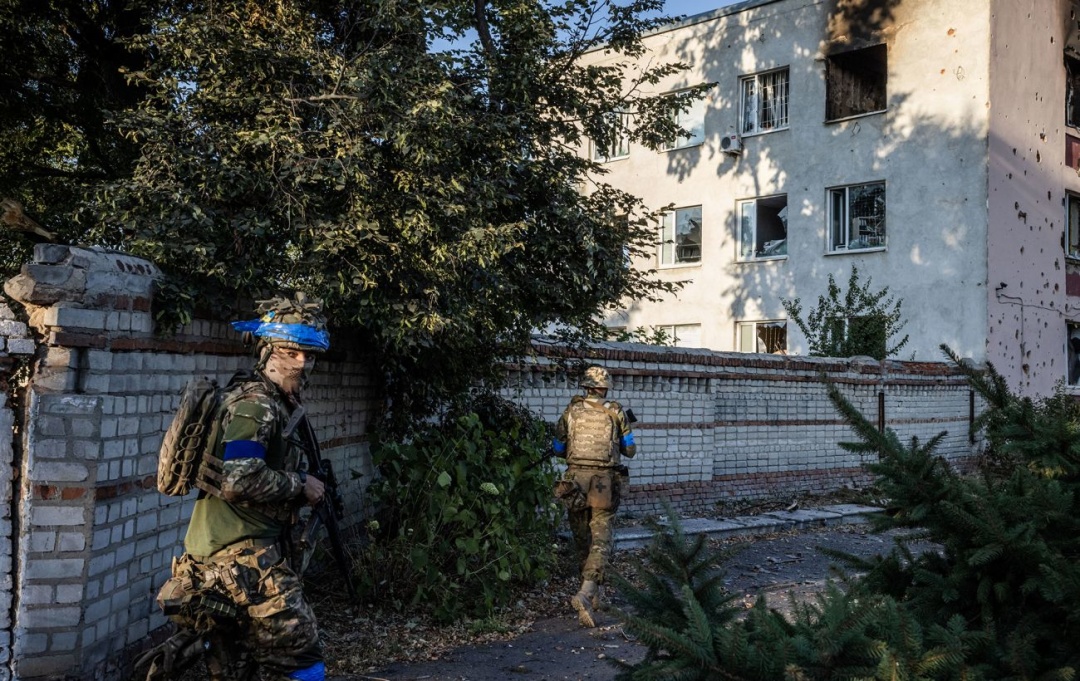
EIGHT GAINS ACHIEVED SO FAR IN UKRAINE’S KURSK INCURSION
Volodymyr Fesenko, Chairman of the Board of the Center for Applied Political Studies "Penta", in a comment to Ukrinform said that the Ukrainian military have achieved at least five gains over the month of their successful operations in the Kursk region of Russia.
First, a limited change in the nature of military operations has occurred.
"For the first time since the fall of last year, the Ukrainian forces went into active and successful offensive actions. Russia has lost its unequivocal, single-handed dominance on the battlefield, while still continuing with its offensive in the Donetsk region. It has become obvious both to the international community and to the Ukrainians that the Armed Forces of Ukraine have not lost their ability to advance, even on the adversary’s territory".
Secondly, the reality of war has been brought home to Russian territory, for the first time and for long while, having taken Russian authorities and population off guard, but also the international community.
"Ukraine's international partners for the first time officially recognized the right for Ukraine to defend itself in this way, by conducting combat operations on enemy’s territory".
Thirdly, the Kursk offensive forced the Russians to withdraw at least part of their forces and reserves from battlefields in Ukraine.
"It also became obvious that the Russian Federation does not currently have large and free military reserves. And what is available is deployed mainly at the Pokrovsk front and in the Donetsk region”.
Fourth, this operation has busted the myth of a "red line" regarding the border between the Russian Federation and Ukraine, crossing which could purportedly cause extremely dangerous consequences for Ukraine and for the West, including Russia's potential use of nuclear weapons against Ukraine, or a large-scale escalation of the current war.
Fifth, the Kursk invasion caused certain reverberations to run through the Russian society. The myth about the invincibility of Putin and the Russian army, in which the Russians began to believe again in the past year and a half, has been shattered.
"On the contrary, the weaknesses of Putin, of the Russian government and Russia’s war machine have become evident again. There have been no drastic changes in the attitudes of the population yet, but some cracks in their attitude towards their government and the war in Ukraine, towards an end to the war, have reappeared. These are just passive sentiments so far, but who knows what will happen next? What matters most is that Ukraine has obtained an additional and significant leverage to pressurize the Russian Federation military and politically," Volodymyr Fesenko says.
Nataliya Belitzer, an analysts at the P.Orlyk Institute of Democracy, added a few more gains achieved by Ukraine’s military in the Kursk offensive.
Sixth, the Kursk offensive revitalized the information space and gave a significant boost to the global interest in the Russo-Ukrainian war and its progression.
"The lead US media outlets, even though immersed in the upcoming presidential elections, do not miss news, reviews and expert assessments of the situation at the Kursk front." But not the Americans alone. In this context, it is worth quoting a Facebook post by the chairman of the Mejlis of the Crimean Tatar People, Refat Chubarov, regarding his recent watchings of Turkish television news broadcasts, which he says are full of inscriptions like, "Ukraine inflicting new surprise blows to Russia", "Will Ukraine bring Russia to its knees?”, "The wind is now blowing from Ukraine", "Russia is unable to halt Ukraine’s offensive".
Seventh, the events in Kursk Oblast reveal the weakness of the government in rule in Russia and of its military and political leaders.
"Utter chaos reigns in Russia’s information domain, despite strict control "from above". Suffice it to look at the dramatic changes in the rhetoric of the Kremlin’s mouthpieces: from the initial "Kyiv in three days" to "the need to ensure more reliable protection of the borders of the Russian Federation against Ukrainian attacks”.
Eighthly, another important gain achieved in the Kursk offensive is a huge number of captured Russian soldiers, including those who are of special value to the Russian authorities - conscripts (especially where their mothers and other relatives are showing a strong protest), FSB personnel, and Kadyrov’s fighters.
"This is what has prompted Russia, for the first time (!) since the start of the all-out war, to request an exchange of prisoners of war. Even though Ukrainian military and political leaders still consider it unrealistic to achieve the prime goal – the all-for-all exchange -- the events in the Kursk region will definitely have a positive effect on the further process of the release from Russian captivity of hundreds of victims of this war, particularly the Azov soldiers, whom Russia has long been reluctant to release," says Natalia Belitzer.
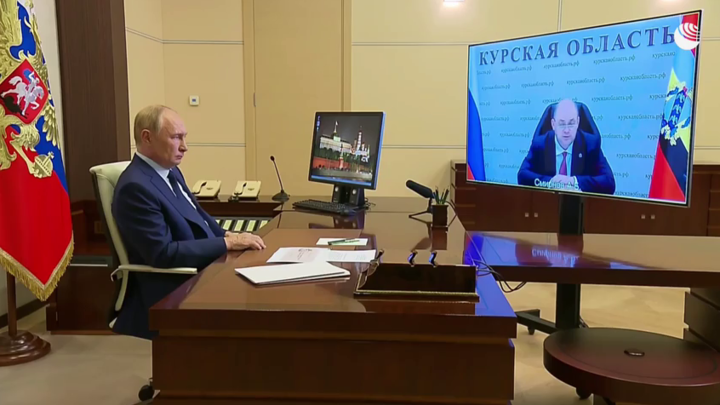
LIBERATING KURSK IS THE NEW GOAL OF SVO: WHY HAS THE KREMLIN SURPRISINGLY CHANGEED ITS RHETORIC?
Oleksandr Musienko, the head of the Center for Military and Legal Studies, was among those experts who noticed a change in discourse in the Russian information space.
"They in Russia are starting to talk more about Kursk. Alaudinov, for example, who is in charge of the Kursk defense among other tasks, in an interview with the TASS news agency, said that the situation is challenging, that Ukraine has sent its best elite units to the Kursk front. ... And he goes on to say that in the so-called SVO, the Kursk operation assumes decisive importance. Well, stop! What about Pokrovsk? Why do the emphases change? Why is Kursk being mentioned more and more frequently? Why did [Putin's spokesman] Peskov surprisingly said that Ukraine will definitely hit with long-range missiles, that the USA will give it authority to strike with the weapons it supplied deep into Russian territory? This is because, as we can see, the Russians have failed to succeed in everything in Pokrovsk. Because the Ukrainian commanders perfectly understand the enemy’s operational ideas and plans, and take a number of measures, including by bolstering this front."
Now, the enemy's plans regarding the Pokrovsk front, the expert goes on to note, are about flanking attacks: "The Russians will not attack Pokrovsk head-on. They will try to attack from south through Selydove, where fierce fighting continues. There is a hot spot here, through which they will try to move towards Kurakhove. And from there to flank assault and storm Pokrovsk. The situation is similar in the north. At first, the adversary will try approaching Myrnohrad, cutting off the logistics routes to Pokrovsk and trying to bypass from the north. This is a "pincer movement" tactic Russia has used on multiple occasions in this full-scale war. But it’s a big question whether the adversary will be able to succeed with this this tactic this time around. The Ukrainian military are containing them. And in general, the military command understand how to bring the Russian advance to a halt and inflict serious losses on the enemy in order to exhaust its forces. The Russians have been far from successful with their so-called "rapid offensive". They are already beginning to experience a lack of some capabilities, but will continue to push forward."
Mr. Musienko draws attention to reports in some foreign media outlets, among them Forbes, who wrote that the Russian forces purportedly had entered Pokrovsk a few days ago, as if it were a fait accompli. But now...
"After they saw the 'fresh' data from Andrew Perpetua, a renowned OSINT analyst, their opinion has changed: with such record high losses in equipment, manpower, etc., the Russian Federation will not be able to seize Pokrovsk." And it is becoming obvious that Russia is now moving on to another task - to surround the city. But this task also requires the involvement of significant resources. Are these resources available to the enemy, who is slowly but surely grinding away, losing more and more?... That is why they order Alaudinov to appear with such statements, like in an interview with TASS. They are preparing a backup plan, like Pokrovsk is a secondary target, and the decisive battle will be for Kursk."
The emphasis has changed, hasn’t it?...
"The Kremlin feels insecure about Kursk... And this indicates that the invading command can send there additional forces from other fronts. This clearly suggests that the Kursk offensive is working, that it is effective. If it were not, the Kremlin would not bring forward Alaudinov with his statements now," Oleksandr Musienko says.
KURSK IS OUR GREATEST MILITARY SUCCESS ACHIEVED AFTER FALL 2022, AND IT IS BEING CONSOLIDATED AND DEVELOPED FURTHER
Yevhen Dykiy, a military and policy analyst, ex-leader of a company within the Aidar Battalion, began his comment with a reminder of the initial configuration the opposing forces had prior to the Kursk offensive:
“Our enemies are facing a hopelessly deep crisis of resources, of the “iron” in the first place, some will do for a year of warfighting, others for half a year; secondly, the resource of "meat", which is still available in sufficient amounts, but new “meat “ is getting harder and more expensive to recruit.
"Our deep strikes and blows have not yet bled the Russian economy, but have already become a significant factor; elementary extrapolation reveals, that in a year’s time the world’s “second army” will simply have nothing left to refuel the “iron” that will still be able to drive by then";
"That said, however, a crisis of resources and reserves, which is clearly looming on the horizon for our enemies (and which their command clearly sees), is still ahead; in the meantime, our war conscription is just beginning slowly, so for now we are on the defensive at the frontline, the enemy is advancing in the Donbas at the cost of huge losses, and has already targeted Pokrovsk;
The Ukrainian people in the rear areas are depressed, the Russian narrative about the "invincibility of the Russian army in an attrition war" has deeply settled in the minds of many common people (contrary to facts, figures and expert assessments), and opinion poll companies of all sorts are skilfully manipulating "surveys" about "compromises" and "acceptable terms” for our surrender;
Everything is even worse with the West: the myth about the Russian invincibility is accepted almost without doubt, and in their media discourse, we have already been ultimately "buried" and are explicitly pushed forward toward a "freeze in fighting" that will be fatal for us".
This being the case, Mr. Dykiy went on to note, the Kremlin is pursuing a strategy that looks appropriate under the current circumstances: "To expedite – as much as possible and whatever the cost -- offensive on the Donbas, squeeze as much as possible out of this offensive, presenting it as "decisive", and thus gain time to push us to a “freeze” that will kills us but save the Russians. Gain time before the Russian army’s lack of resources and reserves becomes obvious, and then they will talk to us not about a freeze, but about surrender".
"The Kremlin's count could have worked well. For our adversary, this is the only saving scenario; with all others, the situation for them will be completely different in half a year’s time, and most likely catastrophic in a year’s time. So having overcome us within the next couple of months is the sole chance for them to avoid a defeat in the war. So they have committed all their resources, military, political and media, to this effort.
...And then, surprisingly, we invaded the Kursk region, and Putin’s whole plan begins to crack, effectively becomes nullified. However, it is not that the Kremlin was completely frustrated or confused, but, true to form, launched a well-planned, well-coordinated media misinformation campaign against us – a campaign aimed to try by every possible way to downplay the scale and significance of the developments in the Kursk region on the one hand and to exaggerate, by every possible way, the scale and significance of Pokrovsk offensive on the other."
"While our troops are redrawing the frontline map and erasing the mythical 'red lines, a distorted picture is being drown in my head and in yours, where some Sudzha has no significance, but what is of significance instead is the potential loss of Pokrovsk by Ukraine (for which the adversary still has to fight a lot, spending personnel in huge numbers), which is presented as a strategic victory that is going to ultimately finalize this war and leave us with no other choice than to surrender," emphasizes Yevhen Dykiy.
He goes on to note that the current situation in Pokrovsk is really extremely challenging, as Ukrainian troops have to maintain their defense lines while fighting outnumbered, in an open field and under glide bombs. So retreats are (were, according to fresh reports) unavoidable. Does this suggest, however, that Pokrovsk will soon fall into the hands of the enemy? No way!
"We have always been and remain more proficient [than the opponent] in defense in urban settings, where every house or basement is a "natural" fortification. A battle for each neighborhood or city block is not all the same as an offensive in the open field, and it costs the enemy incomparably greater losses," the expert says.
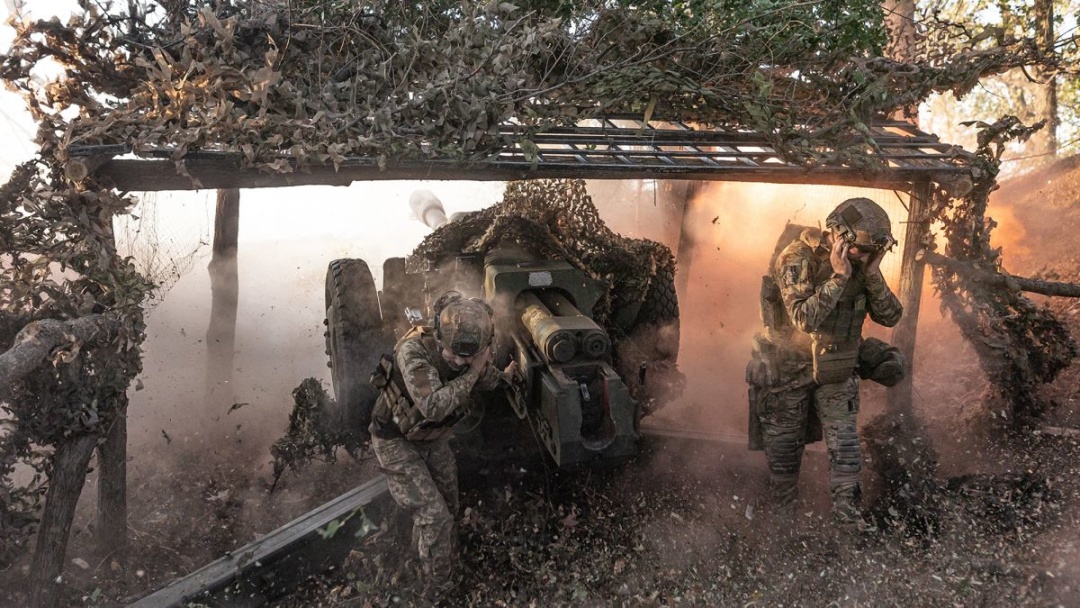
"Ultimately, even if the worst happened and Pokrovsk shared same fate as Lysychansk, Bakhmut or Avdiivka, this, of course, will be lamentable and hard to accept, but by no means fatal. What will be fatal is a defeat in the war – ours’ or the Kremlin’s. War is like a horrible, bloody chess game, where one has to sacrifice pieces, and who is able to checkmate will be the one who wins at the end."
"If Russia’s creeping offensive in the Donbas continues to be the only daily event of this war, there would be only one prospect before us - a "freeze" on Russian terms, in fact, surrender, a little sooner or a little later. After the failed counteroffensive of 2023, Kursk was the first to open up the prospect of our victory - not tomorrow, but not in many years’ time either. And if the price of this is that the battles in urban settings of Pokrovsk begin, let's say, a couple of weeks or even a month earlier than this could have happened, if we commit everything we have to this front, this price is high, yet affordable. And it is incomparably lower than the price the enemy has to pay for its advances", says the former company leader at Aidar Battalion.
In his opinion, anyone who urges us to withdraw from Kursk now – no matter whether "with triumph, because we have done everything we could, and, either way, worse will be forthcoming" or "because it is pointless" or simply "to save Pokrovsk" - is working for the Kremlin, taking part in an information operation designed to help Russia regain the virtually lost hope for a win over us.
"Therefore, our response should be tough, whatever motives a propagandist may have. The slogan 'Zelensky, pull out troops!' should be tantamount to 'Putin, bring in troops!'. This is the same mantra as promoted by our enemies, and whoever shares it is working for the Kremlin. Victory is not going to be won tomorrow nor within a two or three weeks’ time, but its first light is already shining through the long tunnel of darkness. It was shining from Sudzha, from vertical oil tanks burning [in Russia], and even from the entrenchments near Pokrovsk that we lost, albeit after getting them filled up with enemy’s corpses. This light is getting brighter and closer, but we can hardly see it because of fatigue and despair. If we saw it now and started acting accordingly, we will live to the time when this light becomes visible even to a blind man. If we fail to see it, misled by the fallacious picture drawn by the FSB, the light may go out, because we will fall sooner than the enemy. It is precisely this "fall sooner" that gives Russia the only chance of victory, the last chance; if it fails to avail of it, our victory will be just be a matter of time," Yevhen Dykiy summed up.
Emotionally, it is hard to disagree with our expert, and especially so as fresh reports - let's admit it - translate his journalistic zeal into the real world.
Myroslav Liskovych. Kyiv


